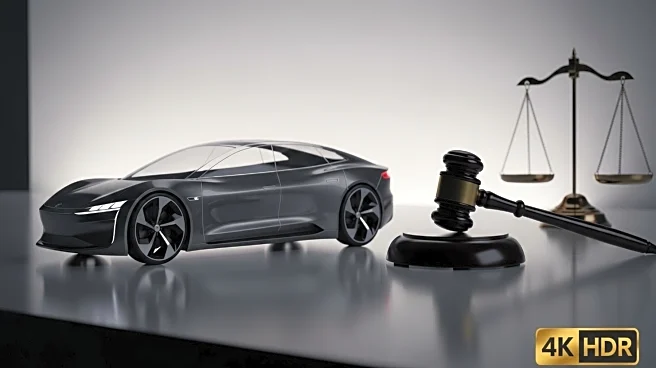What's Happening?
Scout, an automotive company, is preparing to launch its Terra pickup and Traveler SUV models with a direct-to-consumer sales strategy. However, the company is encountering significant legal challenges due to state motor vehicle franchise laws. These laws, which vary by state, often require vehicles to be sold through franchised dealerships, posing a barrier to Scout's intended sales model. The company aims to bypass traditional dealership networks, a move that has sparked legal scrutiny and could impact its market entry strategy.
Why It's Important?
The legal challenges faced by Scout highlight the ongoing tension between traditional dealership models and emerging direct-to-consumer sales strategies in the automotive industry. This situation underscores the broader industry shift towards more flexible sales models, driven by consumer demand for convenience and transparency. If Scout successfully navigates these legal hurdles, it could set a precedent for other automakers looking to adopt similar sales strategies, potentially reshaping the automotive retail landscape. Conversely, failure to overcome these challenges could reinforce the entrenched dealership model, affecting innovation and competition in the industry.
What's Next?
Scout will likely need to engage in legal battles or seek legislative changes to proceed with its direct-to-consumer sales model. The outcome of these efforts could influence other automakers considering similar strategies. Additionally, Scout may explore alternative approaches, such as hybrid sales models or partnerships with existing dealerships, to mitigate legal risks. The company's next steps will be closely watched by industry stakeholders, including competitors, dealerships, and regulatory bodies, as they could have far-reaching implications for the future of vehicle sales in the U.S.










